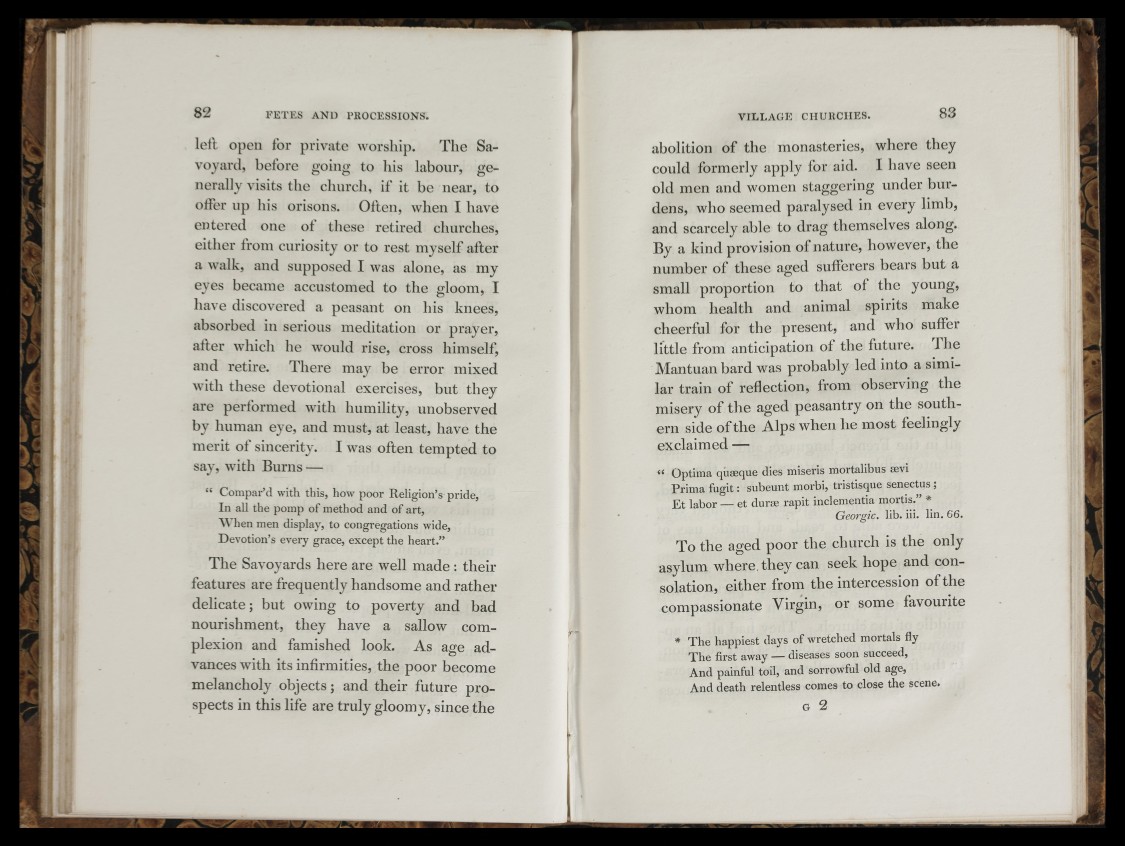
J
left open for private worship. The Savoyard,
before going to his labour, generally
visits the church, if it be near, to
offer up his orisons. Often, when I have
entered one of these retired churches,
either from curiosity or to rest myself after
a walk, and supposed I was alone, as my
eyes became accustomed to the Oal oom,^ I
have discovered a peasant on his knees,
absorbed in serious meditation or prayer,
after which he would rise, cross himself,
and retire. There may be error mixed
with these devotional exercises, but they
are performed with humility, unobserved
by human eye, and must, at least, have the
merit of sincerity. I was often tempted to
sav, with Burns —
“ Compar’d with this, how poor Religion’s pride,
In all the pomp of method and of art,
AVhen men display, to congregations wide.
Devotion’s every grace, except the heart.”
The Savoyards here are well made; their
features are frequently handsome and rather
delicate; but owing to poverty and bad
nourishment, they have a sallow complexion
and famished look. As age advances
with its infirmities, the poor become
melancholy objects; and their future prospects
in this life are truly gloomy, since the
abolition of the monasteries, where they
could formerly apply for aid. I have seen
old men and women staggering under burdens,
who seemed paralysed in every limb,
and scarcely able to drag themselves along.
By a kind provision of nature, however, the
number of these aged sufferers bears but a
small proportion to that of the young,
whom health and animal spirits make
cheerful for the present, and who suffer
little from anticipation of the future. The
Mantuan bard was probably led into a similar
train of reflection, from observing the
misery of the aged peasantry on the southern
side ofthe Alps when he most feelingly
exclaimed —
“ Optima quaeque dies miseris mortalibus mvi
Prima fugit : subeunt morbi, tristisque senectus ;
Et labor — et durae rapit inclementia mortis.” *
Geòrgie, lib. iii. lin. 66.
To the aged poor the church is the only
asylum where, they can seek hope and consolation,
either from the intercession ofthe
compassionate Virgin, or some favourite
* The happiest days of wretched mortals fly
The first away — diseases soon succeed,
And painful toil, and sorrowful old age.
And death relentless comes to close the scene.
G 2